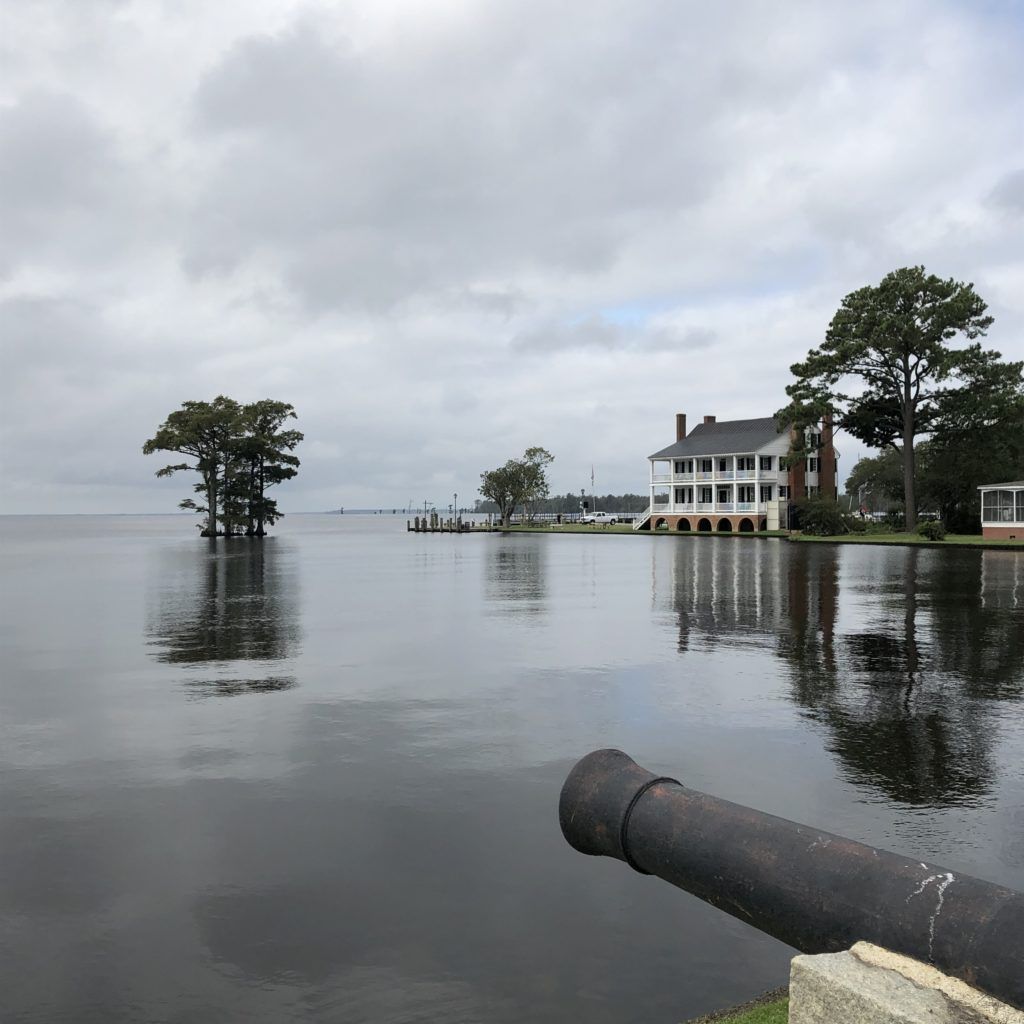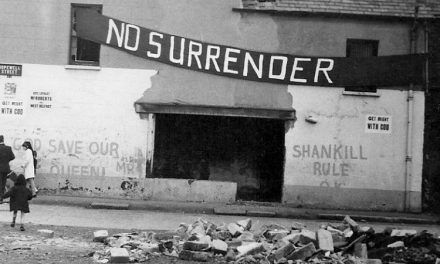
Thomas Saunders was Called to the Bar in 2019, having completed the Bar course with the support of the Inn’s Nicholas Pumfrey Memorial Scholarship. He is currently a pupil at Keating Chambers, where he will begin tenancy in September 2020.

Thomas Mallon was born in San Francisco and educated in the UK. He was Called to the Bar in 2019, with the kind assistance of the Inn’s Quatercentenary Scholarship. He is currently undertaking pupillage.
A long time ago (last September, while the planes were still flying) and in a land far away, a band of intrepid Middle Templars girded up their loins and ventured into the heat and the mists and the mountains. Under the auspicious leadership of Master Treasurer (Master David Bean), Master Richard Wilmot-Smith and Christa Richmond, we had conducted a whistle-stop tour of the state, taking in the University at Chapel Hill, the pretty eastern town of Edenton and the State Supreme Court at Raleigh (named after a Middle Templar, Sir Walter Raleigh).
After a series of hard-fought and highly competitive moots against the North Americans, each one undoubtedly a score draw, we were on our way west – to the Blue Ridge Mountains and the border with Tennessee. From Chapel Hill we made our way to Asheville (where we ate ‘grits’ and drank whiskey at a bluegrass session) and from there up into the Smoky Mountains themselves, to the Eastern Band of Cherokee Indians and the Qualla Boundary.
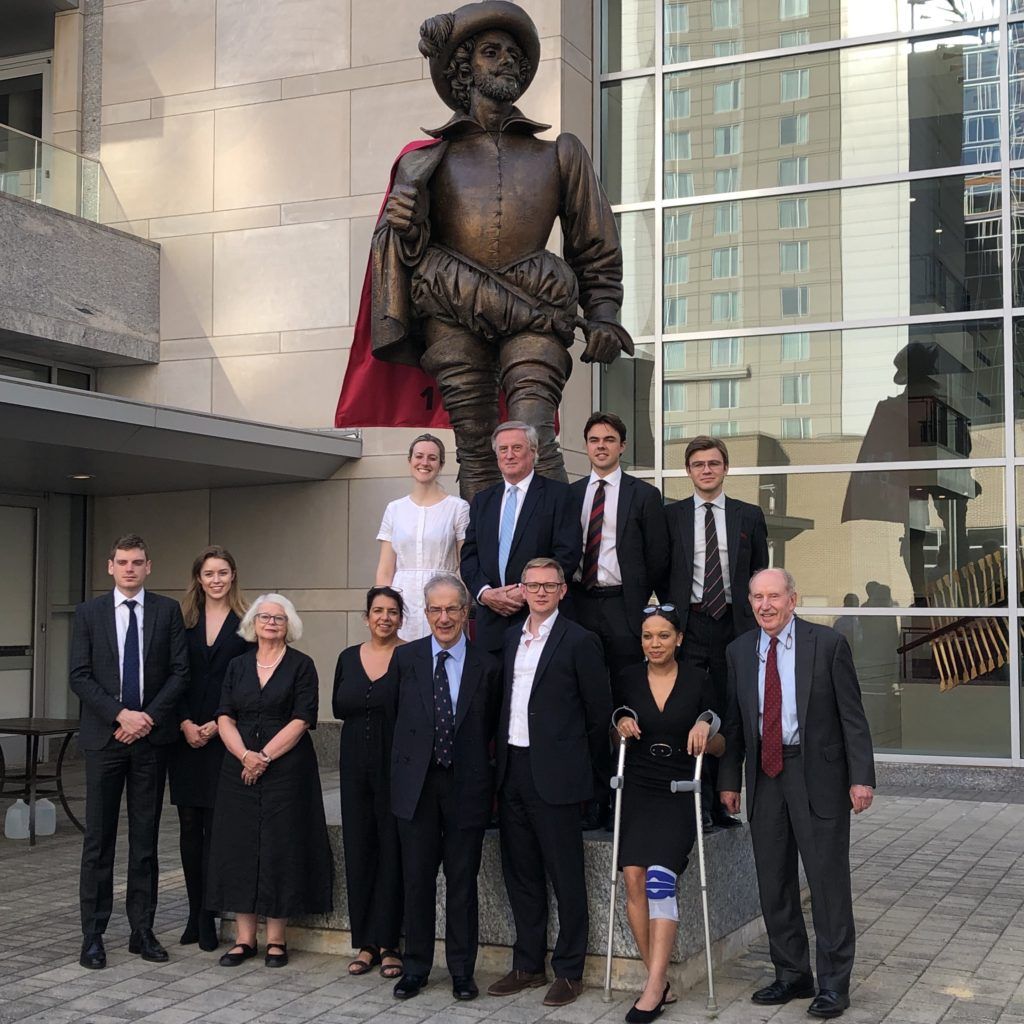
As we emerged from atop a swell of green to enter the Qualla Boundary, it was clear why the Cherokee had picked this spot to resist the United States forced removal of their people. It is a natural fortress, a deep valley walled by old mountains. At first glance, however, there is little to distinguish the reservation from other parts of Appalachia. An old gas station sits comfortably at the main intersection; we pass an all-you-can-eat buffet called Momma’s.
The phrase ‘a tourist in one’s own country’ is usually deployed in service of the kitsch, quaint, or picturesque. One sees visions of the city-slicker in the country village, or the journalist in the run-down sea-side resort. For one of us, however, the phrase had taken on an unexpected literalism. The Mallon side of this article’s authorship equation is, in fact, American – and as foreign as your Californian representative had found North Carolina, he was now in a place which was, if not a foreign state or quite a foreign nation, an independent legal system.
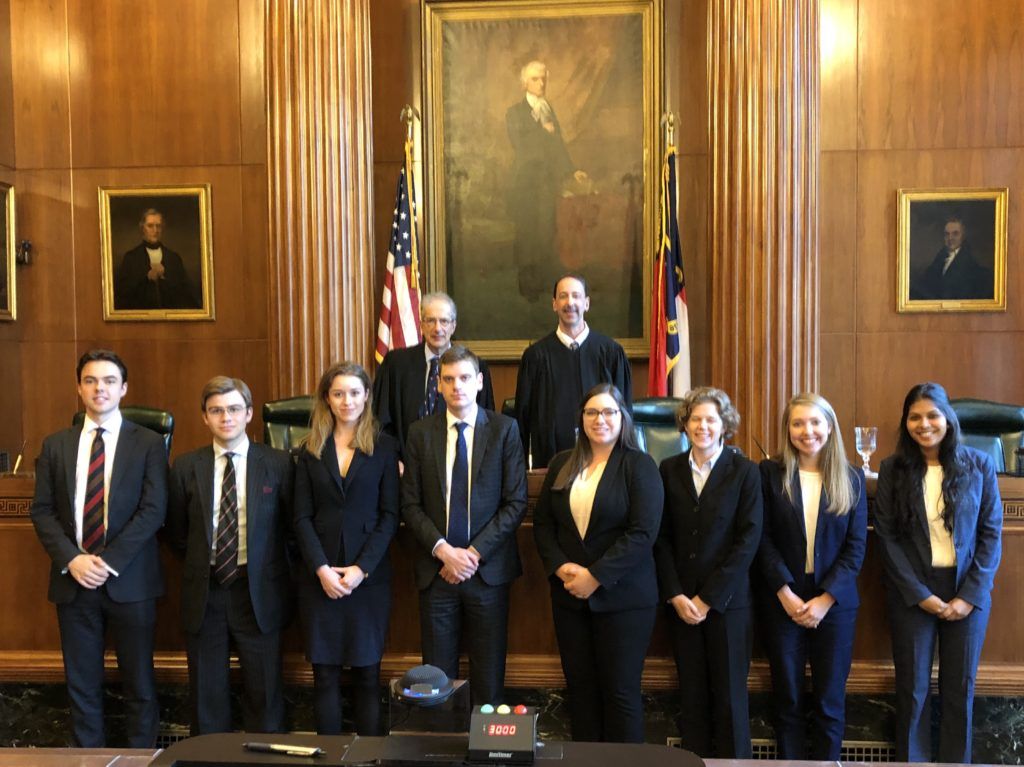
Our first stop is the still new Anthony Edward Lossiah Justice Center, built in 2014 at a cost of $26 million. We pass under the portrait of Anthony Lossiah himself, a Cherokee police officer who died in 2015 of injuries sustained during a foot pursuit.
Once inside, we are taken through to the courtroom itself. All government business is in abeyance, because a senior member of the tribe has died, so we do not see the court in action. Instead, we sit and speak to two of the judges of the court – the Chief Justice, one of the Associate Justices – and one of their prosecutors.
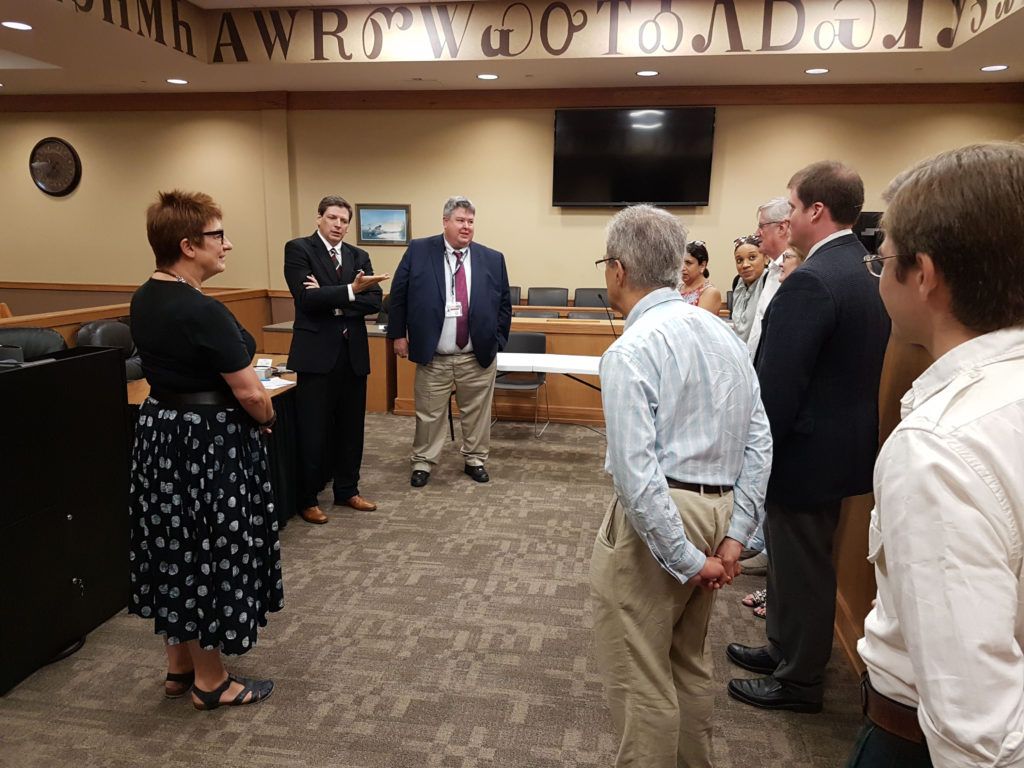
The Eastern Band of Cherokee Indians is descended from about a thousand members of the Cherokee who remained in the east when the Indian Removal Act 1830 forced the removal of the vast majority of the tribe westward, to what is now Oklahoma. It now has about 15,000 ‘enrolled’ members, of whom approximately 11,000 live on the Qualla Boundary. No more than 300 have Cherokee as their first language. We learn a little about Cherokee – most notably, that the syllabic script in which it is written was invented by a man named Sequoya, who had never learnt to write any other language.
They talk to us about their legal system, particularly the uneasy compromises that mark its interface with the wider state and federal justice systems. Little by little, the anomalous politico-juridical nature of the Native American tribe is made apparent. We grope towards an understanding of what the gnostic description we were given to start with – ‘domestic, dependent, sovereign’
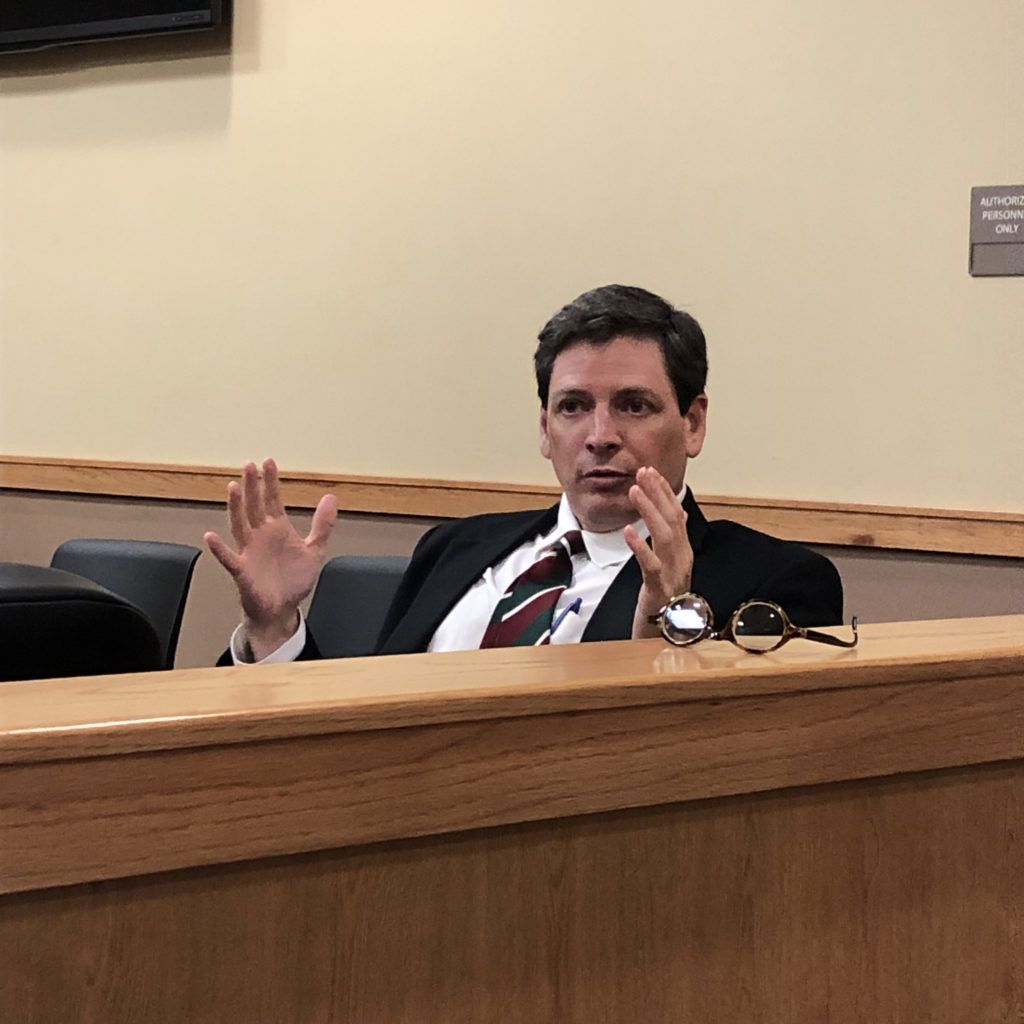
– actually means. The most complex and controversial area seems to be criminal law, where the interaction between tribal, state and federal jurisdiction depends on the status of both defendant and victim, as well as the nature and location of the offence. This appears to be in part because of severe federal limitations on the powers of the tribal courts – maximum sentences for any one offence of three years, and a maximum total sentence of nine.
This most often comes into play when non-tribal Americans commit petty offences on tribal lands—offences over which the tribe can have punitive jurisdiction. We are told with some dissatisfaction, however, that the tribe would have no jurisdiction over a non-native who murdered a member of the tribe, wherever the killing took place (although, they warned us, that rule did not apply to the non-Americans among us). That is made more cutting by the fact that the Cherokee do not impose the death penalty, while North Carolina has 143 individuals on death row at the time of writing. The Eastern Band of the Cherokee have a system which is in many ways recognisable to the common lawyer. There is a distinct judiciary, consisting of a number of justices headed by a Chief Justice; there is a trial court and an appellate court. Trial is by jury and the North Carolina Code of Evidence is applied. We are told that the practitioners and judges in the Cherokee courts qualified within the standard American legal system. Most of them are graduates of the University of North Carolina at Chapel Hill, where we had just finished mooting. Other tribes, however, approach matters in very different ways – ‘Indian law’ is, in truth, several hundred different systems of law.
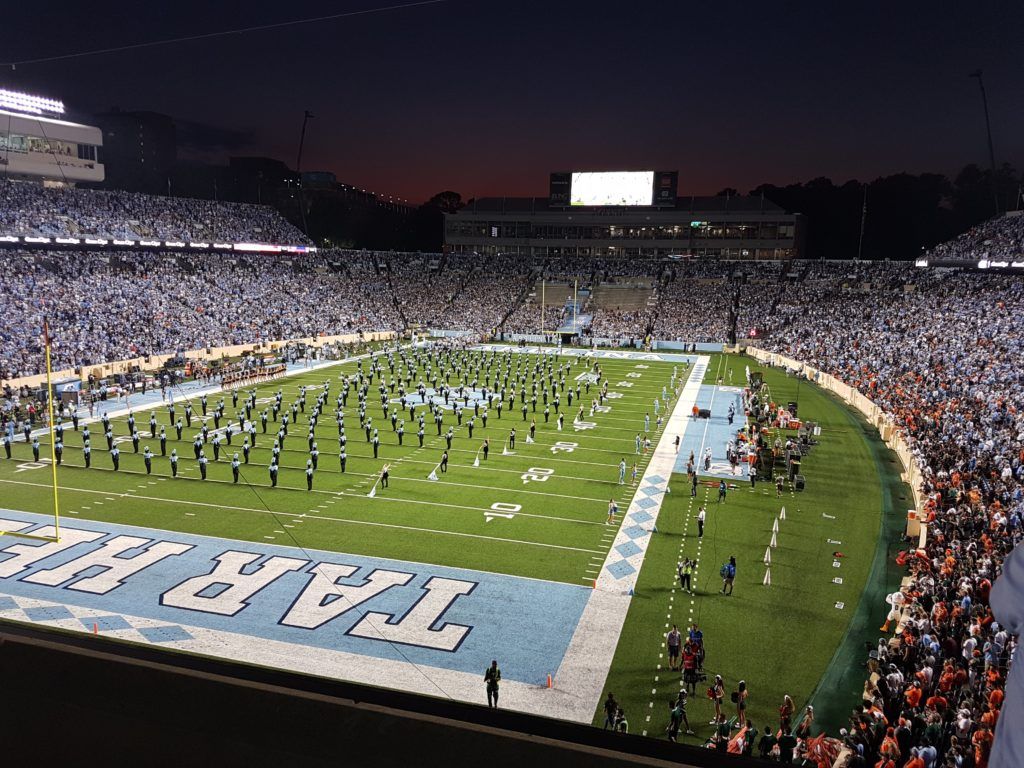
After finishing in the court building, we go for lunch in one of the diners we passed earlier, at the specific recommendation of the Chief Justice. It takes the form of an all-you-can-eat buffet. Most of the food is delicious (although much is unsuitable for your vegetarian correspondent), but one of our group is in for a nasty surprise when what she had taken to be custard turns out to be unadulterated animal fat collected from the various meat options. When we asked her about it for this article, her face blanched and she declined to comment.
After lunch, the time has come to visit the casino. This is the most surreal experience of all. We are slightly befuddled. We are, after all, lawyers, not gamblers, but our guide is the very judge we spoke to earlier. The Cherokee casino is an object lesson in the knotting of law with politics and economics. The tribe’s sovereign status means that the casino’s profits are absolutely free of any state or federal taxation and the casino itself is immune from suit.
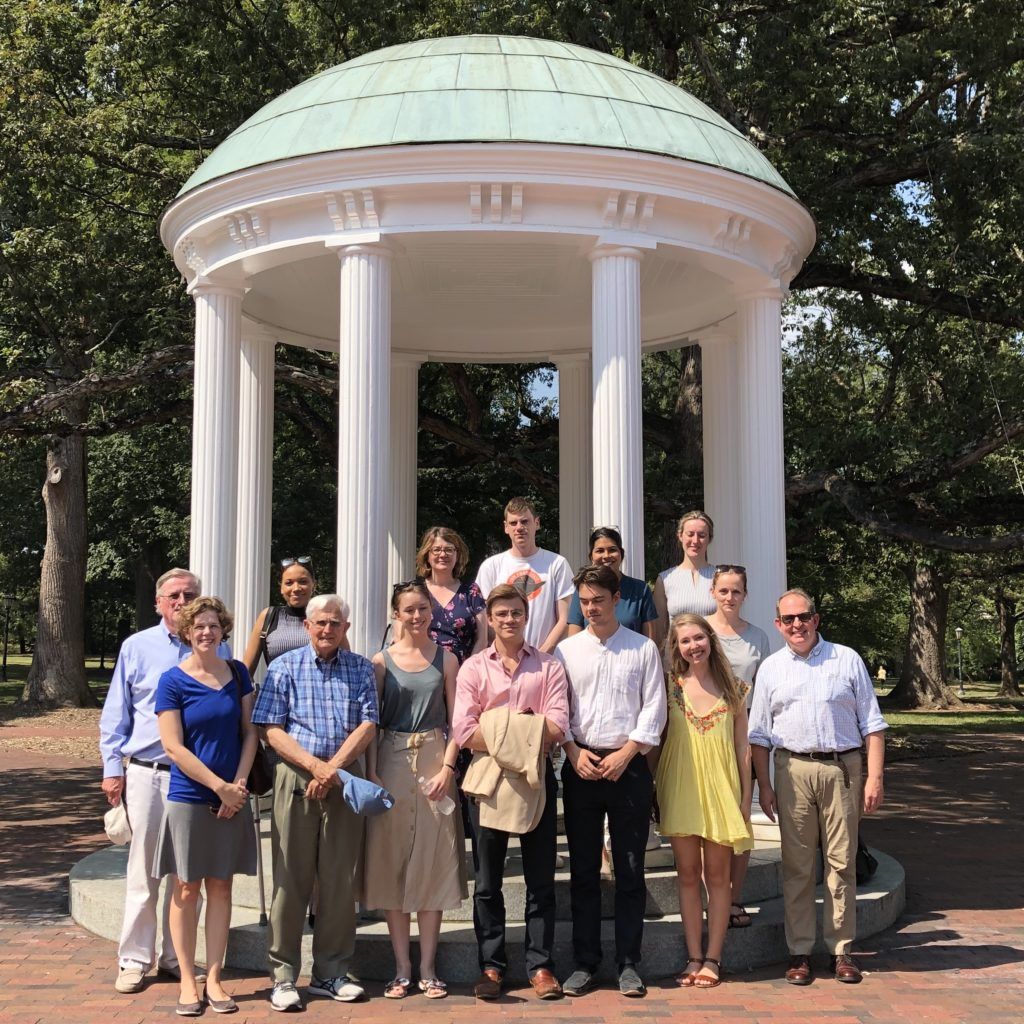
We enter a palatial structure that smells strongly of cigarette smoke. The front entrance is a vast hotel foyer, with prominent screens flashing up the names of winners. Stepping onto a balcony, a great gambling floor comes into view. Electric lights flash and the ‘ka-ching’ of slot machines tinkle. It is the middle of the day, so activity is limited, but time feels warped. There is not a single clock in sight. The fresher-faced among us are IDed before we are allowed down onto the floor.
Those tax-free profits mentioned earlier are colossal. Gamblers flock from the Carolinas, Georgia, Tennessee, and even Alabama. Half is paid out each year to the enrolled members of the tribe, including (albeit held on trust) the children. The remaining 50% is kept in the public purse and spent for the benefit of the tribe. This includes full university tuition payments, a new hospital we are invited to see, and the court building we visited earlier. Whatever one’s views on gambling, history makes it hard to begrudge the tribe this prosperity.
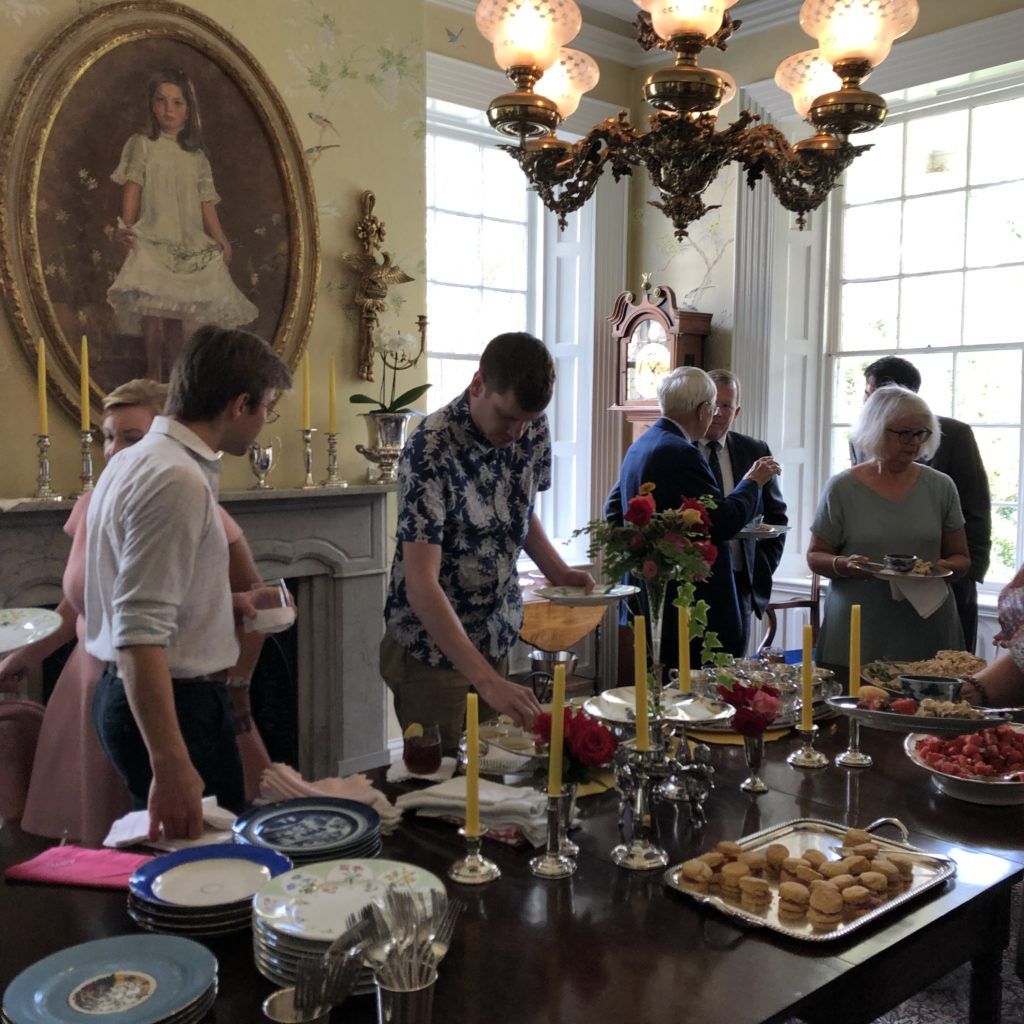
It is now clear why the judge wanted us to see the casino – it is impossible to understand the Cherokee today without it. It is impossible to understand the significance of tribal law without it. Their legal system, uniquely within the majority of US states, could make gambling legal on Cherokee land. The casino provides the funds needed for basic social infrastructure: hospitals, schools, and courts of law. The courts of law ensure the casino’s profitability by asserting its immunity from suit, for example. I am reminded of the Norwegian Oil Fund – it could have been any resource, but in a way their resource was law – their legal system found an economic loophole and took advantage of it. The casino is important because it was the first thing that allowed wealth to accumulate here since the arrival of Europeans.
Our last stop of the visit is the Museum of the Cherokee Indian, another beneficiary of the Eastern Band’s casino- revitalised fortunes. We have already heard much of the historical background, at least from the 19th Century on, and the museum appears to be pitched at a younger audience in any event. The combined effect is that, although interesting, it feels slightly superficial, and we’re left wishing for a slightly more in-depth look. At that same time, we feel that we have already had it.
Finally – fascinated, bemused and impressed in equal measure – we leave the reservation. As we climb higher into the hills, the trees and buildings below shrink, and the vast expanse of the mountains beyond comes into focus. Mountains have a tendency to bring out the sententiously poetic in even the most stolid of characters, and that tendency must be strenuously resisted. We had arrived expecting something between kitsch and depressing. We had left a tough little proto state that consciously or unconsciously seemed to have modelled itself as Scandinavia with elbows. The Californian tries to reflect on a history he knows too little about, and it is fitting that one of us still has the taste of grease in her mouth.
